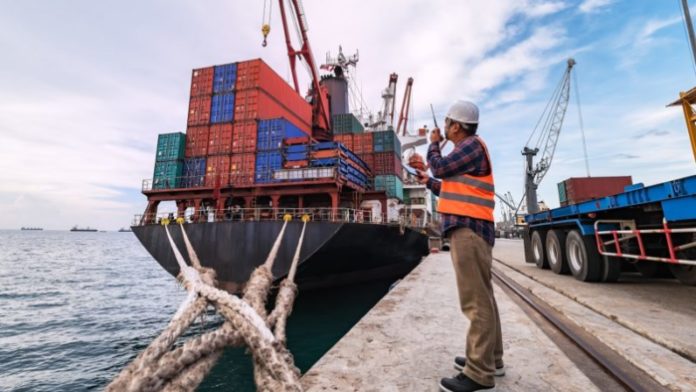
-
New UNCTAD website launched to help build maritime supply chain resilience by helping countries to cope with disruptions
-
Frequent supply chain disruptions have exposed transport and logistics’ vulnerability amid unequal capabilities and resources among countries
-
UNCTAD says it will also roll out a new course on ports and maritime supply chain resilience that is structured around six modules
A United Nations Conference on Trade and Development (UNCTAD) website that helps build maritime supply chain resilience has been launched as a new tool of the United Nations agency to aid countries in coping with and adapting to disruptions that extend beyond pandemics.
The website includes a guidebook for ports entitled “Building Capacity to Manage Risks and Enhance Resilience,” as well as a wealth of other resources, the UN Conference on Trade and Development said in a press release.
UNCTAD said frequent disruptions in supply chains have exposed the vulnerability of transport and logistics operations amid unequal capabilities and resources among countries.
Recurrent extreme weather events, the COVID-19 pandemic, the war in Ukraine and other crises illustrate the magnitude of the challenge and its implications for global supply chains and sustainable development, the UN agency said.
“As disruptions are becoming part of the new normal, resilience and risk management emerge as new mantras for transport, logistics, trade and supply chains,” said Shamika N. Sirimanne, director of UNCTAD’s technology and logistics division.
“The web package provides our beneficiaries with support in risk identification, assessment, management tools and approaches, case studies, good practices and a step-by-step resilience-building process for ports and other relevant maritime supply chain actors.”
Sirimanne added that UNCTAD will update the website as additional resources and tools become available.
Sustainability and resilience are important to member states, as highlighted at UNCTAD’s ninth session of the multi-year expert meeting on transport, trade logistics and trade facilitation held in July 2022.
Participants expressed concern over the ripple effects of disruptive events driving up consumer prices, inflating food and energy bills and reducing transport service reliability.
UNCTAD said its work on trade logistics resilience-building aims to alleviate and mitigate hurdles resulting from disruptive events and their negative effects on the smooth delivery of cross-border trade.
“The COVID-19 pandemic took the entire world and ports by surprise. It woke us up to the reality that building resilience against such shocks should henceforth be a daily routine,” said Michael Luguje, head of Ghana Ports and Harbours.
UNCTAD said its guidebook presents a step-by-step approach, tools and methods to build the capacity to enhance port resilience. It underscores the importance of preparedness and emphasizes the role of effective risk management.
The guidebook provides guidance for ports, as a key node of the maritime supply chain handling over 80% of maritime trade volume. It will be expanded to encompass collaboration with other actors in hinterland connections that are crucial in designing responses to disruptions and building resilience.
UNCTAD will also roll out a new course on ports and maritime supply chain resilience that is structured around six modules. This work was carried out in the overall framework of a broad UN initiative launched in 2020 entitled “Transport and trade connectivity in the age of pandemics”.




